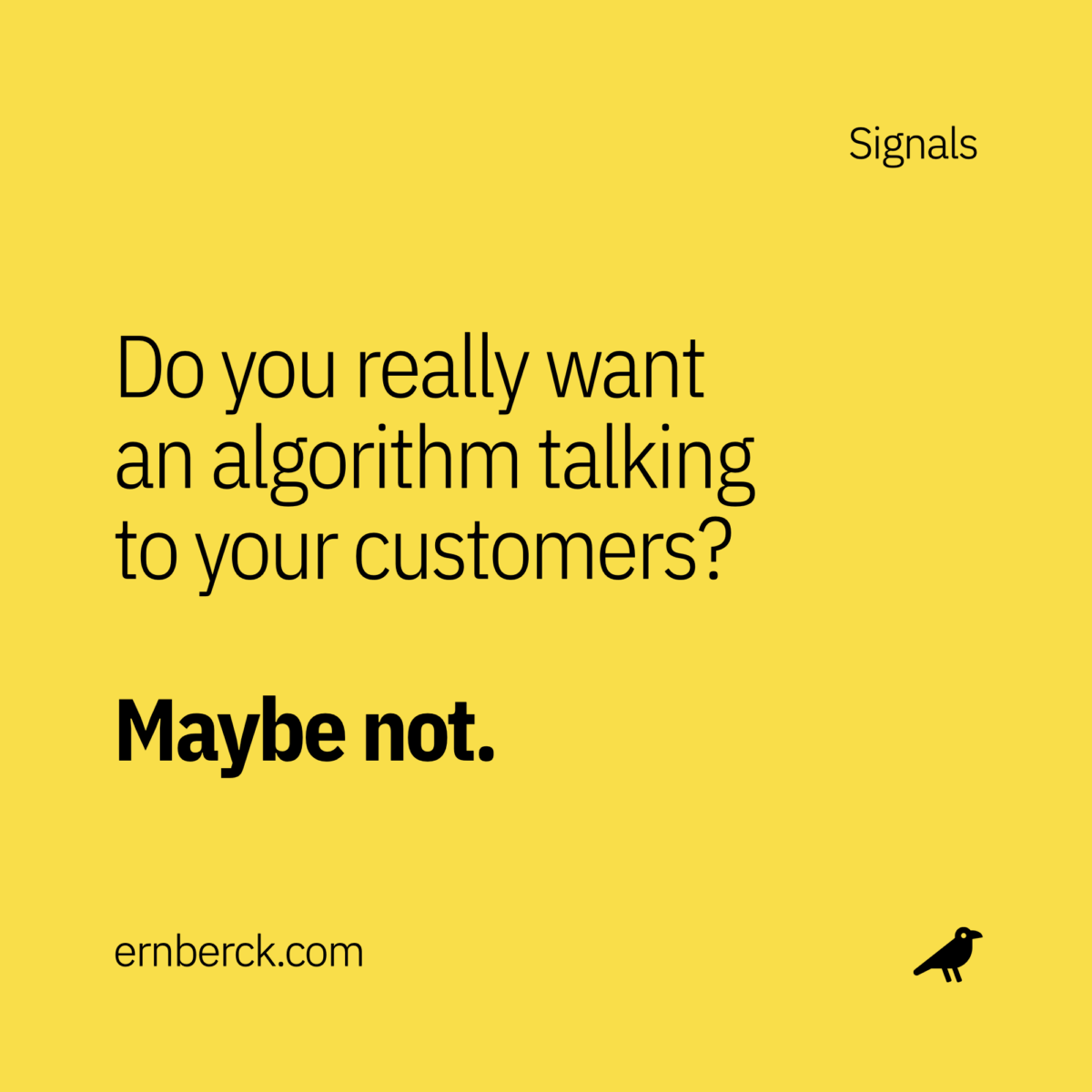Do you really want an algorithm talking to your customers?
Maybe not.
Do you even know what an algorithm is?
Do your customers? Simply put, an algorithm is a set of rules that a software program follows to solve a problem or complete a task. They’re central to how artificial intelligence (AI) marketing tools — including chatbots — operate.
And, like any new technology, AI marketing tools involve opportunity and risk. But when marketing experts are pitching you the glamour of AI, they rarely mention risk.
Why?
Because most marketing people don’t understand AI. They’re just using fear tactics to sell you the next shiny thing and collect a monthly fee. AI is extraordinary. But it’s also kind of flaky. It can make a mess of things if you’re not ready for it.
What you need to know about AI.
Here are five fun facts about AI that you probably didn’t know, but should:
01. AI does not create truly original content
Most people assume that chatbots create entirely unique content. Nope. They synthesize patterns and structures from pre-existing data. AI doesn’t invent from scratch; it recombines and reinterprets.
02. Content bias can be a huge problem
AI reproduces and amplifies any favoritism or prejudice present in the data it’s trained on. This can affect fairness and inclusivity in the content it produces. AI sometimes says intolerant and discriminatory things.
03. AI often generates false information
AI models can generate information that is factually wrong, misleading, or nonsensical. AI doesn’t “understand” the world in the way humans do — it only predicts likely patterns based on past data. This often leads to errors or “hallucinations.”
04. AI can create inflammatory content
Intentionally or unintentionally, chatbots can be mean — they sometimes produce harmful or offensive responses. Without human oversight, this content could go unchecked and piss off users or damage brand reputations.
05. Possible lack of privacy and data protection
AI models often handle personal data. Improper use or exposure of this data can lead to privacy violations. For instance, AI chatbots might inadvertently collect sensitive information from users without proper safeguards.
In short, AI needs a babysitter.
Most people think that AI can magically create content, engage in conversations, and solve problems without human intervention. But without supervision, it can often produce incorrect, irrelevant, inappropriate, offensive, or low-quality results.
